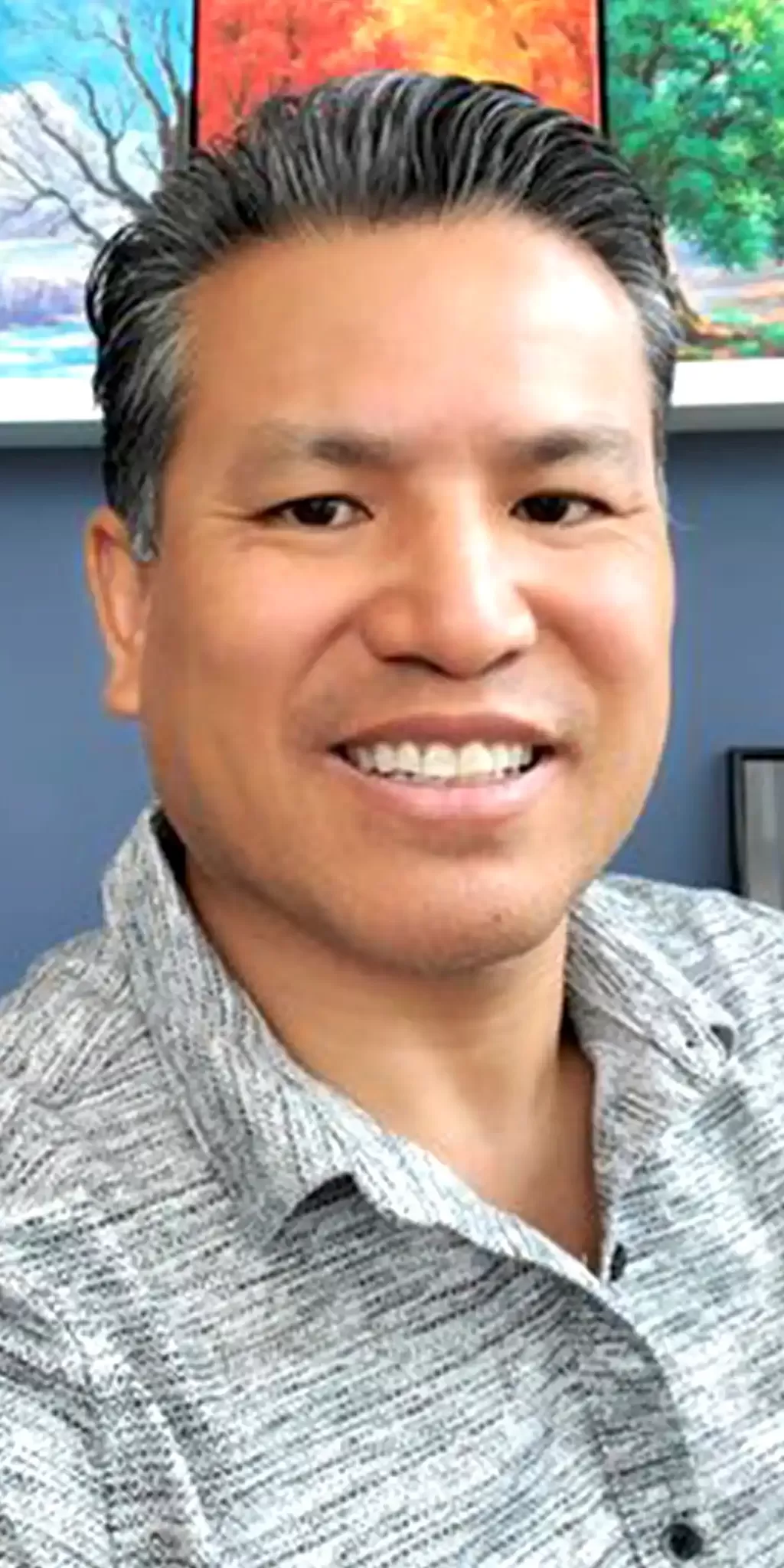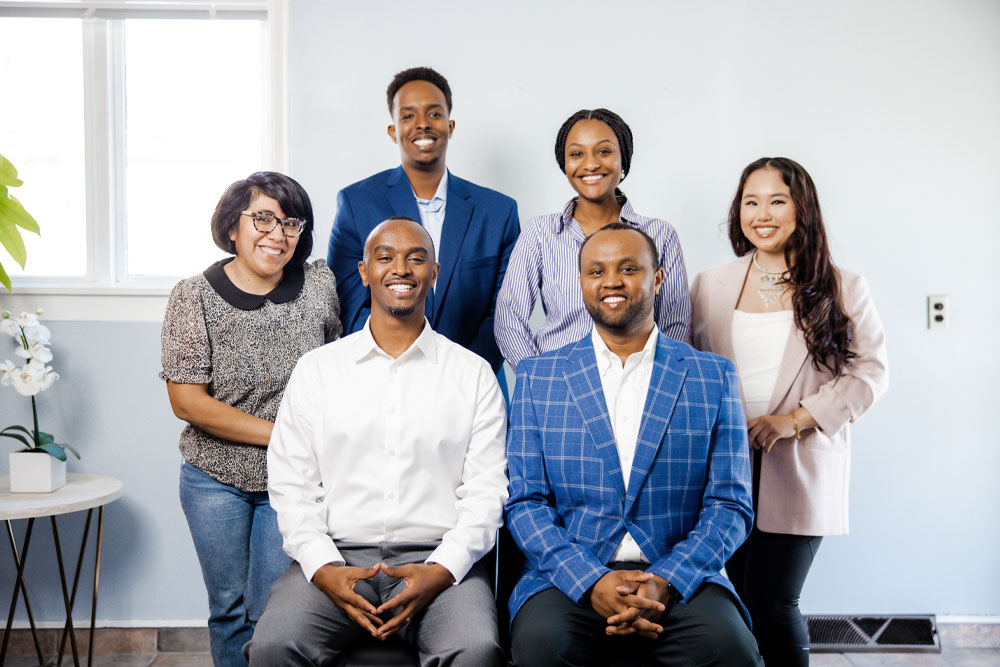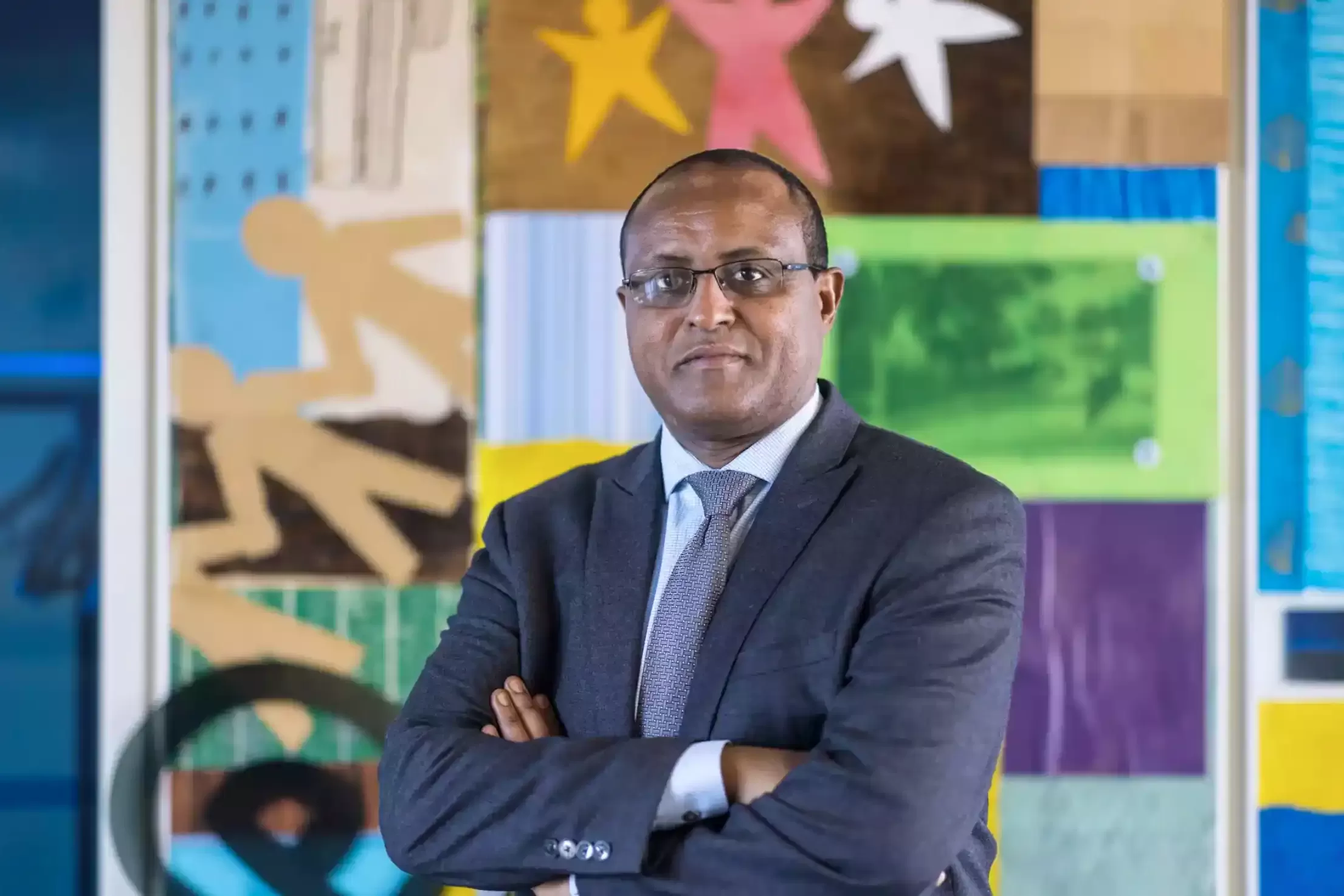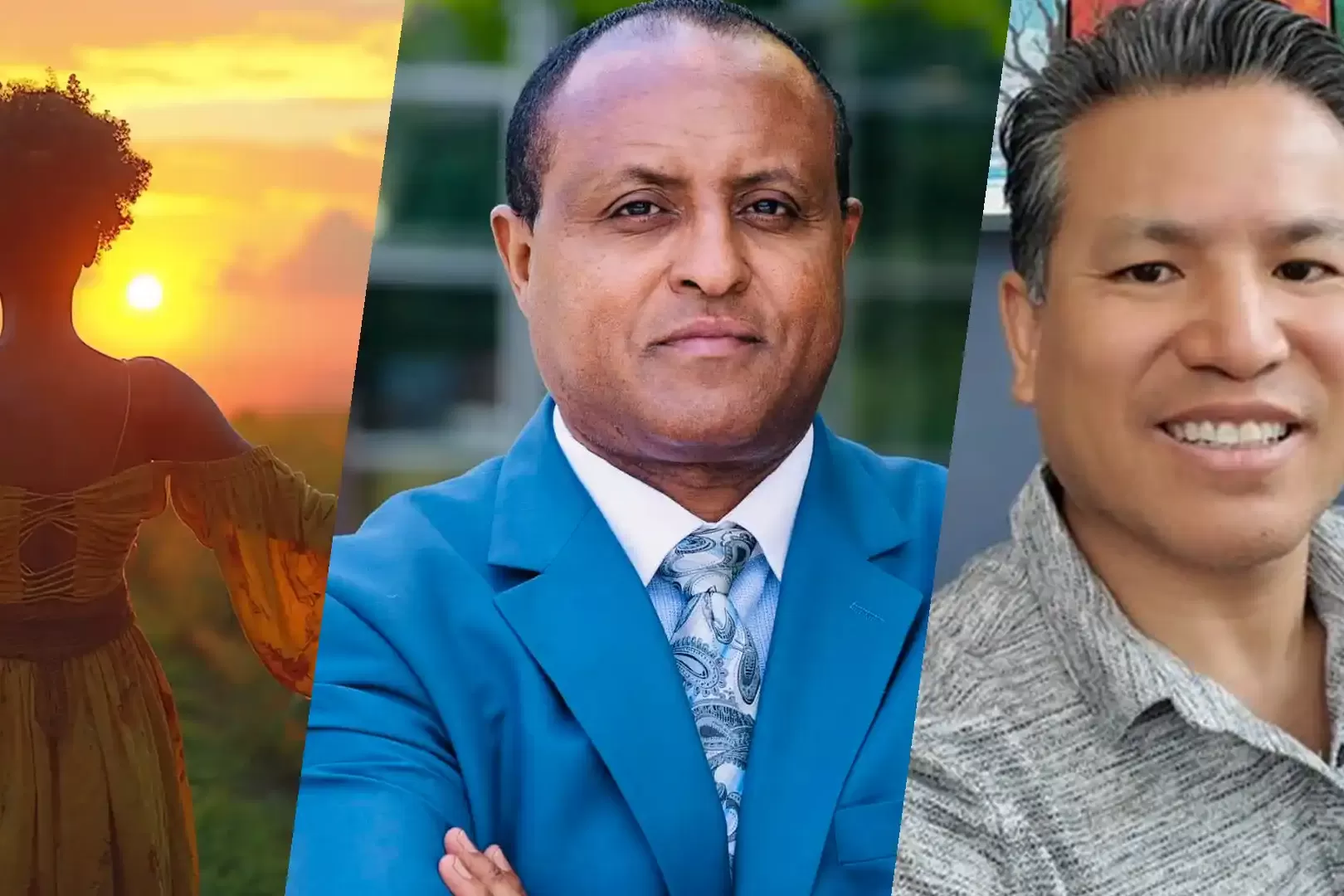Cultural stigma, misunderstanding, language barriers, financial constraints, and social isolation often result in significant impediments to African immigrants seeking mental health services in the Minneapolis-St. Paul area. We sat down with Keo Sengsavang, an outstanding licensed professional clinical counselor specializing in trauma, to learn what it means to be a healer in a community of immigrants who may need Adult Rehabilitative Mental Health Services (ARMHS).
Sengsavang has unique and enlightening insights regarding what it’s like to be a mental health professional working in ARMHS in the Twin Cities area. As a person who may be eager to join this field, listen to Keo Sengsavang’s story and learn about the challenges trauma specialists encounter as they work with immigrant communities.
African immigrants, like others, experience inadequate or inappropriate care, hindering the overall effectiveness of treatment. Bridging these gaps is crucial to ensuring effective communication and a better understanding of the unique challenges faced by African and other immigrants on the part of administrative and clinical providers of mental health services.

Keo’s Personal Journey: Being an Engaging, Compassionate, and Capable Professional
Keo Sengsavang is a licensed professional clinical counselor in the state of Minnesota, as well as an outpatient therapist, consultant, and business owner. Since 2010, he has served the immigrant and refugee populations and underserved communities in the Twin Cities area. He became involved in Adult Rehabilitative Mental Health Services (ARMHS) in 2011 while doing his internship.
After leaving Laos as a refugee with his family when he was nine years old, Keo recalls struggles in transitioning to the new culture. This, he believes, is what helped to drive his interest in mental health care in general.
Understanding the Role of ARMHS Mental Health Professionals
In effectively serving immigrant communities, Keo believes that clinicians need to have a deeper understanding of how ARMHS fits into the mental health paradigm, as well as an understanding of the unique challenges faced by individuals in these communities. These often include not only the stressors mentioned earlier, but in many cases, they can include traumatic events and/or traumatic stress.
What is ARMHS?
“Mental health is a ‘big umbrella,’” Keo says. “But, ARMHS is a small section of this umbrella that focuses on adults. ARMHS is a behavioral skills-building program that focuses on building skills and achieving practical outcomes. The program hosts services for adults that further support the work of outpatient therapy. ARMHS supports counseling, outpatient therapy, or psychiatric care.”
What Makes Someone Qualified for ARHMS?
There are 3 qualifications necessary to be in the ARMHS program.
- An individual must be 18yrs or older
- This individual must have a mental health diagnosis
- The individual’s diagnosis creates an impairment in their functioning
Having passed these qualifiers, Keo says, ARMHS primarily focuses on teaching that individual to build skills to cope with the issue and facilitating ongoing or more intensive care where it is needed.
“The more common diagnoses that individuals within ARMHS have are either anxiety, anxiety disorders, mood disorders, PTSD, or depressive disorders,” Keo says. “So, when these symptoms show up, that obviously impedes the individual’s ability to either adjust, manage, or cope with their daily life tasks. At that point, oftentimes the individual is encouraged to see a therapist or counselor on a regular basis.”
Does Everyone Start Off in ARHMS?
According to Sengsavang, ARMHS is one of the common positions that people take to become a licensed mental health professional. “It helps us to see and experience [the scope of the field] from the ground up.”
“I’ve been a part of ARMHS in one form or another from 2011 all the way to 2020,” Keo says. “I was a practitioner up until about 2016, and then I shifted over to outpatient therapy—being a counselor and a therapist. Even still, I’ve always had some dealing with ARMHS. Such as looking over documentation, working with clients, and consulting with people providing ARMHS to clients.”
Evolution of the Industry: Changes and Landmarks
While there are ongoing challenges on both the client and provider sides, there is a mix of news regarding how the industry has evolved in recent years in recognizing impediments to accessibility, overcoming them, and engaging culturally competent, compassionate caregivers.

How the COVID-19 Pandemic Changed ARMHS
Ironically, according to Keo, the COVID pandemic represented tremendous changes, some of which were actually for the better.
“The pandemic opened up the doors to telehealth,” he says. “There are so many more telehealth opportunities available now, which were previously not available. This has increased the demand for mental health services, including ARMHS, and the payers have responded by covering them. There are also a lot of clients who may not have been comfortable reaching out personally or coming into the office. Many of these clients are more open to telehealth.”
Bureaucratic Challenges That Come with Being a Provider
While there are certainly challenges to accessibility on the patient side, practitioners such as Keo also face their own impediments, primarily ones that they see as potentially hindering accessibility for their clients.
“In the mental health field,” Keo reflects, “one of the things that’s become more challenging is that there seems to be a greater increase in oversight and administrative documentation. Therapy, in many ways, is an art form as far as intuitively knowing how to relate and interact with others and connect with other human beings. When we require a lot of documentation, the focus then becomes just that and less on the actual connection with the clients.”
This preoccupation with red tape, Keo says, can further complicate an already challenging journey toward securing mental health services, particularly for immigrant populations, many of whom have inherent cultural challenges and little experience in navigating bureaucracies.
Cultural Sensitivity Training
Another positive aspect of change that Keo has seen throughout his career is that cultural differences and trends are being more widely recognized within the industry. There are also clearer educational requirements for practitioners, and the industry has become more trauma-focused, encouraging greater numbers of clinical trauma professionals.
The Value of Feedback
There is also a great deal more attention paid to feedback, not only from clients but in terms of utilizing the observations of clinicians, who are now communicating with each other a great deal more than in the past. This, Keo says, improves the overall quality of mental health care, including ARMHS.
The Value of Peer-to-Peer Collaboration
“As mental health practitioners, we still need to meet in clinical consultation, at least once per month, if not once weekly.” Keo says. “This gives us the opportunity to throw ideas around.” Such peer-to-peer work also helps practitioners overcome some of the obstacles they face, such as newer practitioners who may be afraid to encourage their clients to challenge themselves or to consider new perspectives.

Safeway Home Healthcare: Engaging, Compassionate, and Capable Mental Health Professionals in the Twin Cities
Keo Sengsavang is just one of many clinicians involved in Safeway Home Healthcare’s Adult Rehabilitative Mental Health Services (ARMHS). Today, we at Safeway Home HealthCare tailor our services to address mental health issues and the cultural challenges faced by those in the immigrant community.
What Do We Offer?
Safeway Home Healthcare’s ARMHS is committed to ensuring that those within immigrant communities in the Twin Cities area feel heard, understood, and supported in their efforts to secure compassionate care in mental health services.
We offer a holistic approach to mental well-being. Our comprehensive mental health services encompass a wide range of support.
These include but are not limited to:
- Budgeting and financial management skills
- Developing a healthy lifestyle, including nutrition and exercise
- Anger management techniques
- Interpersonal and social skills
- Emotional regulation strategies
- Transportation assistance
- Decision-making support
- Behavior, emotion, and thinking management
- Coping mechanisms and self-care techniques
- Home management guidance
- Mindfulness and self-awareness practices
- Motivational skills
- Relationship management support
- Parenting skills development
- Employment planning and support
- Educational guidance
- Stress and worry reduction techniques
- Relapse prevention and harm reduction strategies
If you or a loved one would like to be connected with our dedicated team of professionals to learn more from our Safeway team.
You or a loved one can achieve greater independence and a fulfilling life in your Twin Cities community.
Learn more here and connect with our dedicated team of professionals to learn more about achieving greater independence and a more fulfilling life for you or your community.
Share
Subscribe To Our Newsletter
Safeway HHC Contributors
Our dedicated team of home health care professionals works closely with clients and their families to develop a personalized care plan that reflects their values and priorities. We strive to empower our clients to take an active role in their care and to make informed decisions about their health and well-being.
Related News
April 2, 2024
Dr. Abe: A Mental Health Leader for a Community in Need
Whether new arrivals, permanent residents, or naturalized citizens, African…
March 25, 2024
Emeldah: The Strength It Takes to Seek Mental Health Help
Emeldah Mwansa is a 68-year-old mother of three adult children and four…
March 17, 2024
3 Mental Health Voices in the Twin Cities Immigrant Community
For many years, the United States has been a destination for individuals…


